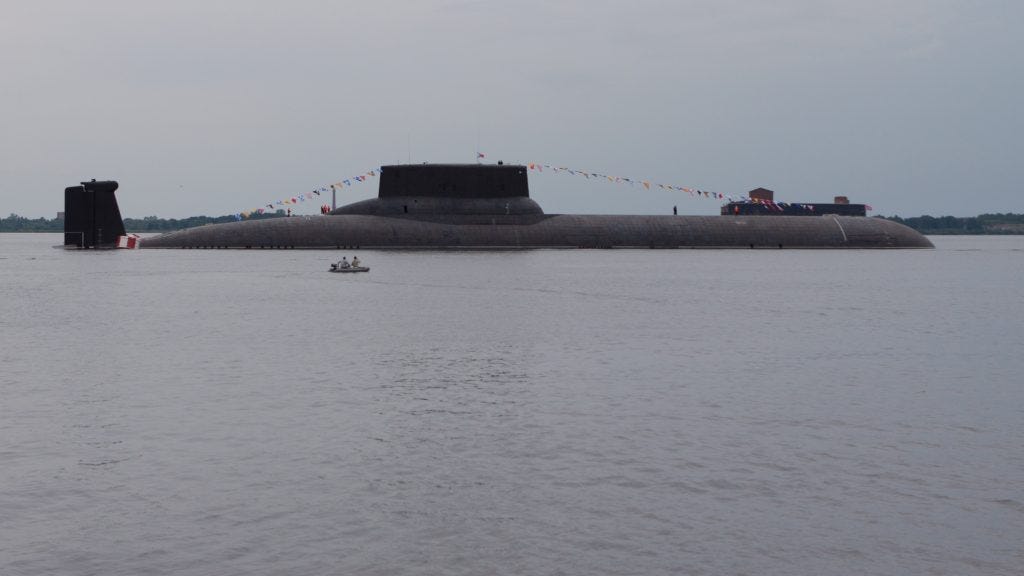G-G Mary Simon could help Canada ban nukes from the Arctic
Simon was actively involved in the Inuit Circumpolar Council (ICC)
Former chairperson of the Canadian Pugwash Group, Adele Buckley says that says Canada can make an important contribution to Arctic cooperation by urging the United States and Russia to forge a nuclear-free agreement for the arctic. Mary Simon, Canada’s new Governor-General – could be key to its success.
Read more in this week’s edition of the influential Hill Times Newspaper (worth a subscription!).
Biden-Putin Arctic co-operation gives Canada an opportunity
By Adele Buckley
The Arctic region that has for decades been recognized as non-militarized is now heading toward a state that can only be deemed as militarized.
When the American and Russian presidents met in June for their summit, the Arctic represented a rare point of common ground. Arctic watchers noted U.S. President Joe Biden’s intent that “the Arctic remains a region of cooperation,” and Russian President Vladimir Putin’s equally interesting desire for the Arctic to continue as “a zone of understanding.”
As an Arctic nation, Canada could take this opportunity to support Arctic co-operation and understanding by a modest increment in its Arctic policy. In ongoing support of nuclear arms control and disarmament, Canada should have an aspirational statement that it supports a goal of an Arctic region free of nuclear weapons. This is fully in line with existing Canadian policy. This would not be a case of breaking new ground in nuclear disarmament diplomacy since Denmark (Greenland), under the guidance of then-foreign policy minister Holger Nielsen, has included this aspirational position in their Arctic policy since 2012.
Today there is increased tension created by Russia’s remarkable renewal and increase of military bases and operations in the Arctic and by North Atlantic Treaty Organization’s (NATO) ever-larger military exercises, annually, in the North Atlantic and extending into the Barents Sea. The Arctic region that has for decades been recognized as non-militarized is now heading toward a state that can only be deemed as militarized.
Canada’s Arctic and Northern Policy Framework has an extensive chapter on safety, security, and defence. Canada plans to deploy several new Arctic-capable surface vessels to aid in the defence of Arctic waters in cooperation with its allies in NATO, a nuclear weapons alliance. Arctic waters are host to submarines known to be equipped with multiple nuclear missiles. Both Russia and the United States continue to upgrade and renew their submarine fleets.
Other nuclear weapon states, such as Britain, France, and China, will, in the future, send their submarines to Arctic waters. Submarines will be in the central Arctic Ocean, and sooner or later will find it advantageous to enter Canada’s Exclusive Economic Zones (per United Nations Convention on the Law of the Sea (UNCLOS)). Avoiding all mention of this situation in Canada’s policy document is a major shortcoming. One might also wonder how the participant nations of the Search and Rescue Agreement would handle a submarine accident.
Strong, Secure, and Engaged is a policy statement of the Canadian Department of National Defence. The Arctic section rates half a page, with emphasis on cooperation within the Arctic Council, an admirable organization that intentionally does not address military matters.
The appointment of Mary Simon as Canada’s new governor general raises hope that all of Canada will raise its awareness of Arctic issues and that the Government of Canada will expend resources to support its Arctic security policy. Simon was actively involved in the Inuit Circumpolar Council (ICC) from 1980 to 1994 and served as president from 1986 to 1992. ICC’s member countries include Canada, the United States, Denmark (Greenland) and Russia (Inuit of the Chukotka Peninsula).
Arctic peoples have suffered the burden of a spectrum of nuclear operations, from the Second World War and continuing through the Cold War period. The 1983 resolution on a Nuclear Free Zone in the Arctic is the ICC Resolution demanding the absence of nuclear materials from the Arctic. While it is still in force, this forceful resolution has now fallen into obscurity. ICC published the Inuit Arctic Policy in 2009 and also issued a multi-page excerpt relating to Arctic Security, stating full support for the disarmament goals of the United Nations General Assembly and reiterating the requirement for the absence of nuclear weapons and nuclear weapons testing.
Continuing to draw attention to the Arctic and the Inuit people, Canada can make a modest contribution to Arctic cooperation through an aspirational statement, similar to Denmark’s, supporting the future attainment of a nuclear-weapon-free Arctic. Note that of the four ICC member countries, Canada and Denmark, both members of NATO, are nuclear weapons free and have the opportunity to step forward, however lightly, toward nuclear disarmament.
Adele Buckley is a physicist, aerospace engineer, and environmental scientist. She is the past chair of the Canadian Pugwash Group.


